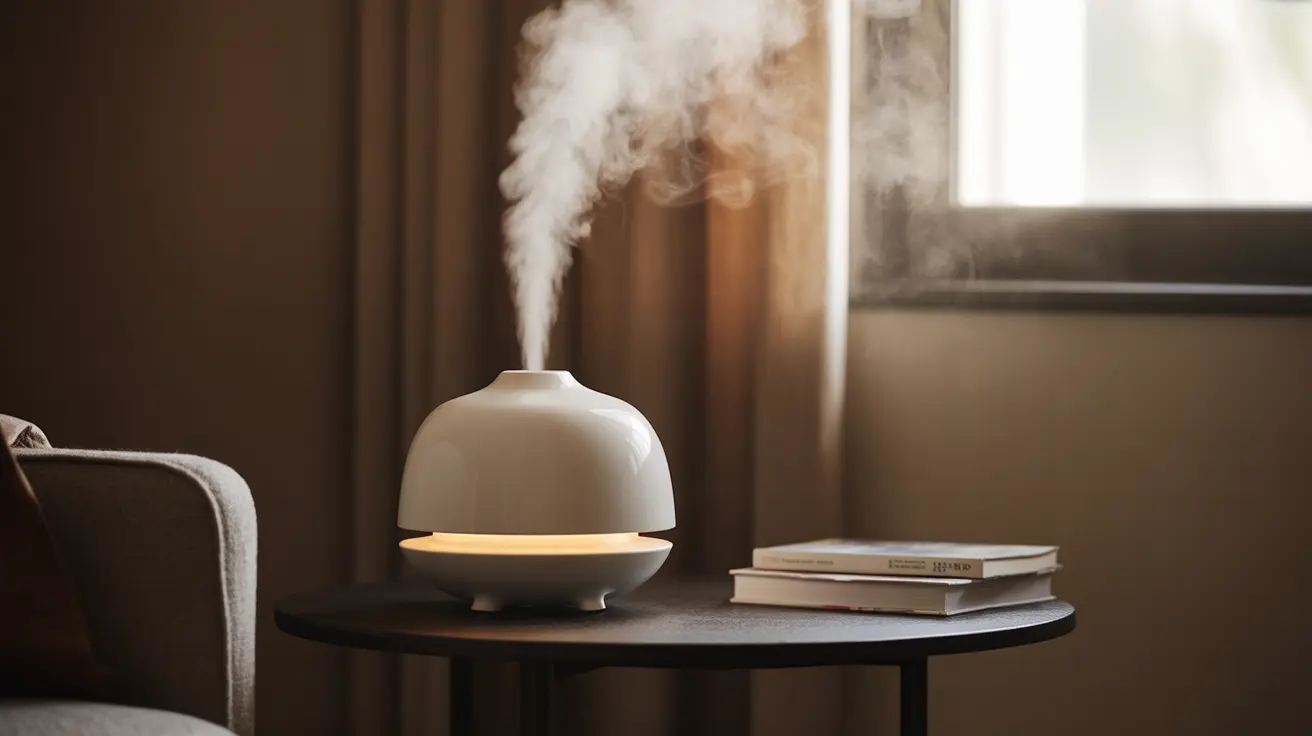A humidifier is a device that adds moisture to indoor air, playing a crucial role in maintaining optimal humidity levels for health and comfort. Understanding what a humidifier does can help you make informed decisions about using one in your home, especially during dry seasons or in climate-controlled environments.
These devices can significantly impact your health and well-being, from improving respiratory comfort to protecting your skin. Let's explore the various benefits, types, and proper usage of humidifiers to maximize their potential while avoiding common pitfalls.
How Humidifiers Benefit Your Health
Humidifiers serve multiple purposes in promoting better health and comfort. They work by releasing water vapor into the air, which can help maintain optimal indoor humidity levels between 30% and 50%. This moisture-rich environment offers several key benefits:
- Relief from dry skin and chapped lips
- Prevention of irritated nasal passages
- Reduction in static electricity
- Improved comfort for respiratory conditions
- Better sleep quality
For many people, the benefits become especially noticeable during winter months when heating systems can dramatically reduce indoor humidity levels.
Types of Humidifiers and Their Applications
Cool Mist Humidifiers
Cool mist humidifiers are particularly effective in warmer climates and are often recommended for children's rooms due to their safety features. They work by creating a fine, room-temperature mist that gradually increases air moisture levels.
Warm Mist Humidifiers
These units heat water to create steam, which can help warm a room while adding moisture. They're especially beneficial during cold weather and can help ease congestion, though they require careful placement to prevent burns.
Ultrasonic Humidifiers
Using high-frequency vibrations to create water droplets, ultrasonic humidifiers operate quietly and efficiently. They're available in both warm and cool mist options, making them versatile for various needs.
Proper Maintenance and Safety Considerations
While humidifiers offer numerous benefits, proper maintenance is crucial for safe operation. Regular cleaning and maintenance help prevent the growth of harmful bacteria and mold, which could otherwise be dispersed into your living space.
Essential Maintenance Steps:
- Clean the unit every 3-7 days
- Use distilled or demineralized water
- Change water daily
- Replace filters as recommended
- Monitor humidity levels regularly
Optimizing Humidifier Use for Maximum Benefits
To get the most benefit from your humidifier while minimizing potential risks, consider these key factors:
- Place the unit at least 3 feet from furniture and walls
- Maintain proper humidity levels using a hygrometer
- Choose the right size unit for your room
- Position the device where mist can circulate freely
Frequently Asked Questions
- What does a humidifier do to help with dry skin, nose, and throat?
A humidifier adds moisture to the air, which helps prevent and relieve dryness in skin, nasal passages, and throat tissues. This added humidity can reduce irritation and discomfort while promoting better healing of dry, cracked skin.
- How can using a humidifier relieve cold, flu, or allergy symptoms?
Humidifiers help keep nasal passages and throat tissues moist, which can reduce congestion, ease coughing, and make breathing more comfortable. The moisture can also help thin mucus, making it easier to clear from airways.
- What are the risks of using a humidifier improperly or without regular cleaning?
Improper use or maintenance can lead to the growth and spread of bacteria and mold, potentially causing respiratory issues. Over-humidification can also promote dust mite growth and create condensation that damages walls and furniture.
- How often should I clean my humidifier to prevent bacteria and mold growth?
Clean your humidifier every 3-7 days, depending on usage and water type. Daily water changes and weekly deep cleaning are recommended to prevent microbial growth and ensure safe operation.
- What types of humidifiers are best for different rooms or health concerns?
Cool mist humidifiers are ideal for children's rooms and warmer climates. Warm mist units work well in cold weather and for congestion relief. Ultrasonic humidifiers are versatile and quiet, making them suitable for bedrooms and offices. Choose based on room size, specific health needs, and safety considerations.




